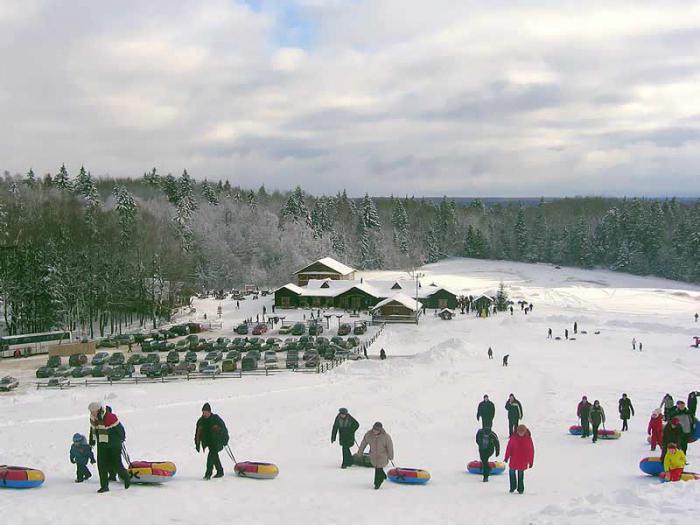Yakut names: a brief history
The Yakut language comes from the Turkic. But it spread among the Russians, Evenks and Evens who live in the territory of Yakutia and adjacent republics. An original dialect is on the territory of the Krasnoyarsk Territory. Yakut culture is a mixture of shamanism and Orthodoxy.
A bit of history
An interesting fact is that many Yakut names wereall the same borrowed from the Russian language. But this is easily explained. Yakuts have long since adopted Orthodoxy. Therefore, most of their names are Russian. In the old days they were given at baptism. The ancient names have changed a lot and now they sound modern. Although among themselves the Yakuts call each other in their own language, in communicating with the Russians - they prefer officially accepted options, more familiar to strangers.
Model of the Yakut names
In modern times the Yakutian model of namesis trinomial. It consists of a name, patronymic and last name. And most often it sounds in Russian (Yegor Zakharovich Sokolov). But often the names of Yakut origin (for example, Mogusov). Sometimes there is a personal name in the Yakut language. Among the names of the most common - Ivanov, Vasiliev, Petrov. There is also a "church" origin (for example, Dyachkovsky).
In the Yakut language, mostly simplepopular forms of names. There are diminutive forms or subjected to transformations. Earlier, affectionate affixes ("kaan", "chik", "ka", etc.) were widely used.

They are still used. But the affixes "chaan" and "laan" are more popular. And they are used for people of any age category. Shrinkingly caressing Yakut names can be found not only in conversations, but also in fiction.
Value of names
The meaning of Yakut names can be quiteinteresting. For example, before the adoption of Orthodoxy, some names were given to children directly at birth, and others were acquired by them a little later. The initial ones were formed from Yakut appellatives. And the choice had different motives: physical disabilities, circumstances at birth, "safe" from disease and adversity.
For example, to deceive "evil spirits" the name given towas considered forbidden. And instead of him, the child was given a nickname. It was used as a name. For nicknames were selected animals, names of objects, traits of character or appearance, etc. In modern times such "underground" names lost etymological significance. But many Yakut names are preserved. And most often belong to the elderly.

The semantics of nicknames and is now very clear. It goes back to the common noun (Kubakh - "hare", Atyrdyah - "pitchfork", etc.). The largest group of nicknames consists of underscoring or bad character traits of a person, his appearance, manners or physical disabilities. For example, Boltorha (chubby), Sergeh (sensitive), etc. Often a nickname was given by the name of the area or its characteristic features.
Nicknames are sometimes given in modern times. You can meet the Yakut, who has a nickname, second and Russian name. But nevertheless, in modern times, newborns receive the Yakut name, which is chosen from the folk epic, popular works, large rivers. But quite often quite new Yakut names are created. For example, after the revolution there were "Communard", "Karl", "Clara".
National names-nicknames among the Yakuts beforedid not have an obvious division into male and female. In modern times, everything has changed. Some nicknames began to be considered names, divided into male and female or refers to both sexes.

Female and male names
Yakut names of girls, like boys, originatedfrom the name of strong beasts and birds. They, as it were, "shared" their qualities with newborns (for example, Hotei - "eagle"). Over time, when the aunts grew older, the original names or nicknames did not quite match the bearers. In this case, the child was given an additional name, already "adult" (for example, Taragai "bald").
Girls were often called by the names of rivers(for example, Lena, Yana), and the boys - Vilyui, Aldan. The legendary Yakut primogeniture enjoyed great popularity among the male names: Ellei, Manchaara. Or favorite heroes of legends: Tuyaarima, Nyurgun. Among the female names are still popular names of famous Yakut writers or their heroines. Very relevant were and remain poetic neoplasms. Of these, new male and female names of the Yakuts often appear.

Popular names
The most popular male names:
- Aihal is unbearable;
- Ayhan is joy;
- Bergen is a good one;
- Dohsun - a remote;
- Nuolan is judicious;
- Timir is an iron;
- Tolluman - fearless;
- Erhan - brave blood.
The most popular female names are:
- Ayana - the way, the road;
- Altana - copper;
- Carachene is beautiful;
- Mica - smiling;
- Sinara - thinking;
- Nariyana is tender.
It is worth noting that the Yakut names of boys are nothad great differences from girls (Byllai, Ayah, etc.). But there were only women - Udagan, Chisty. And also only men - Timirdey, Ayal or Sylan. In modern times, belonging to the floor can be determined only after the end of "a".
</ p>




